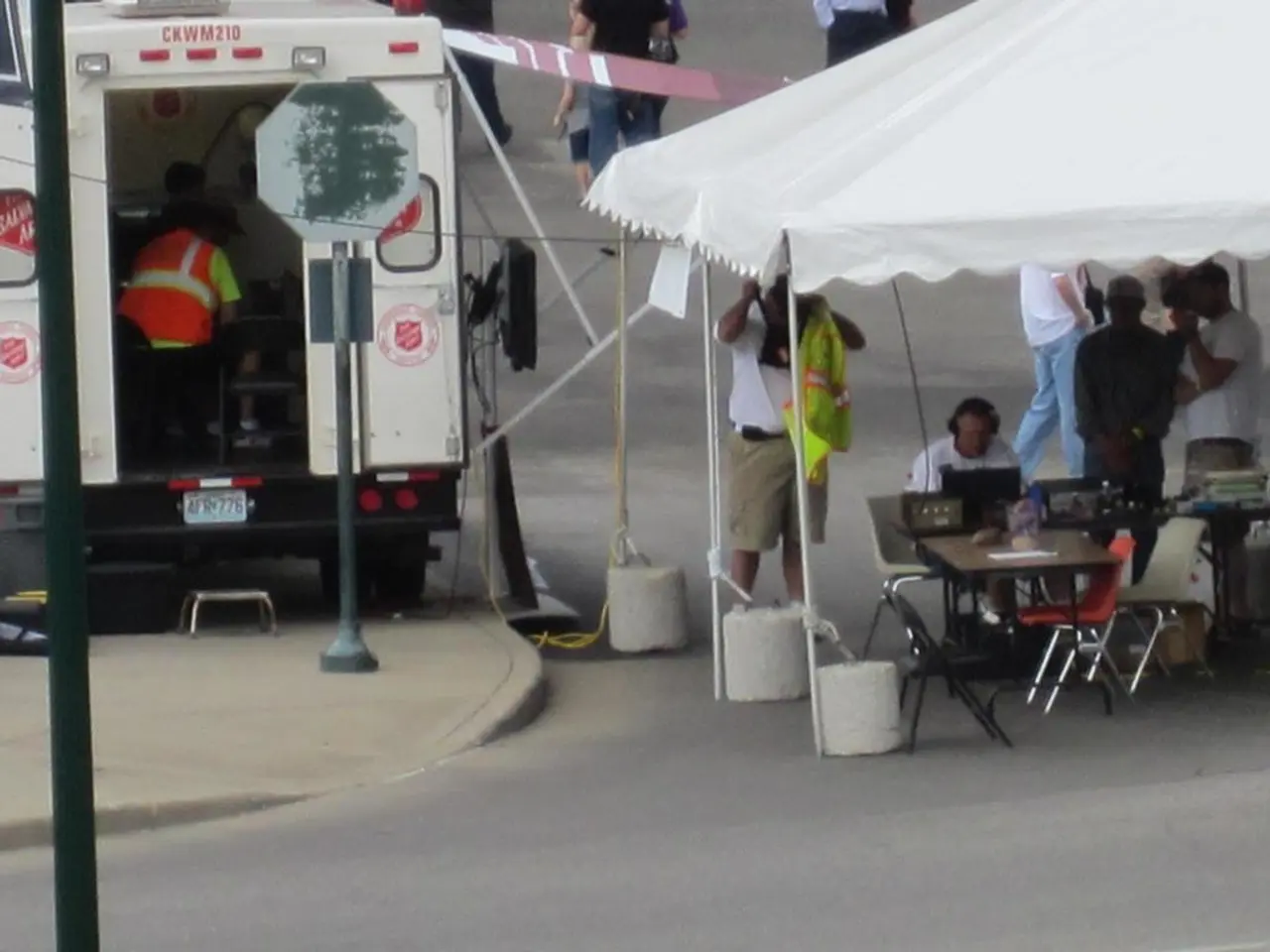Enhances United Nations backing for humanitarian initiatives within Gaza region - International Ally, Wadephul, Endorses United Nations Aid for Gaza Strip
In the heart of the ongoing Middle East conflict, German politician Johann Wadephul is currently in Israel on a mission for the Security Cabinet in Berlin. The focus of his visit is the Gaza Strip, where a severe humanitarian crisis is unfolding.
Wadephul announced the opening of a new field hospital in the Gaza Strip, supported by the Maltese in cooperation with the Latin Patriarchate of Jerusalem. The clinic and further medical supplies will be delivered to the northern Gaza Strip in the coming days.
However, the humanitarian situation in Gaza remains dire. According to the Israeli army, 49 hostages remain in the Gaza Strip, with 27 reportedly dead. The Foreign Office confirmed that there is still a "single-digit number" of German nationals among the hostages taken by Hamas into the Gaza Strip.
The controversial Humanitarian Foundation (GHF) has replaced the previously responsible UN organizations as the main distributor of aid goods in the Gaza Strip. This change, primarily due to Israel's accusations of aid diversion by Hamas, has been met with criticism. Senior humanitarian officials and UN agencies strongly rejected these accusations, condemning the GHF as militarized, unsafe, and violating core humanitarian principles.
The GHF system, operated by two US private companies in coordination with the Israeli military, has been criticized for its unsafe, militarized environment and failure to deliver comprehensive aid. Meanwhile, the UN and international NGOs face increasing operational restrictions, limiting their ability to deliver safe and effective assistance.
Wadephul has demanded that the UN be able to distribute goods again in the daily temporary ceasefires established by Israel for parts of the Gaza Strip. The replacement of the UN-led aid system by the Israeli-backed GHF has resulted in a more dangerous, less effective humanitarian response, worsening the crisis for Gaza’s civilian population.
Wadephul's mission includes conveying the central demands of the German government to Israeli and Palestinian authorities. These demands include a significant improvement in the humanitarian situation in the Gaza Strip, the dismantling of the ruling Islamic Hamas, and Germany's position on a "negotiated" two-state solution.
Wadephul's visit takes place amidst growing international pressure on Israel to allow significantly more aid deliveries to the Gaza Strip. Germany's humanitarian aid for the Palestinian territories amounts to more than 330 million euros since the start of the Gaza war in 2023, with a recent increase of up to 30.7 million euros in May 2025.
After Wadephul's talks with UN representatives, a meeting with Palestinian President Mahmoud Abbas in Ramallah is planned. In Ramallah, the annexation of the West Bank, demanded by some Israeli politicians, is likely to be a topic.
The crisis in Gaza continues to escalate, with civilians repeatedly dying from shootings around GHF distribution centers. The international community urges Israel to reopen humanitarian corridors and ensure full access for humanitarian partners to deliver aid during ceasefires or pauses in conflict.
The Commission has also been consulted on the draft regulation on the implementation of the common fisheries policy, considering the German politician's mission to Israel and Palestine amidst war-and-conflicts and general-news. The focus of Johann Wadephul's visit, as part of the Security Cabinet in Berlin, is the Gaza Strip, where politics surrounding aid distribution and the humanitarian crisis remains a contentious issue.




